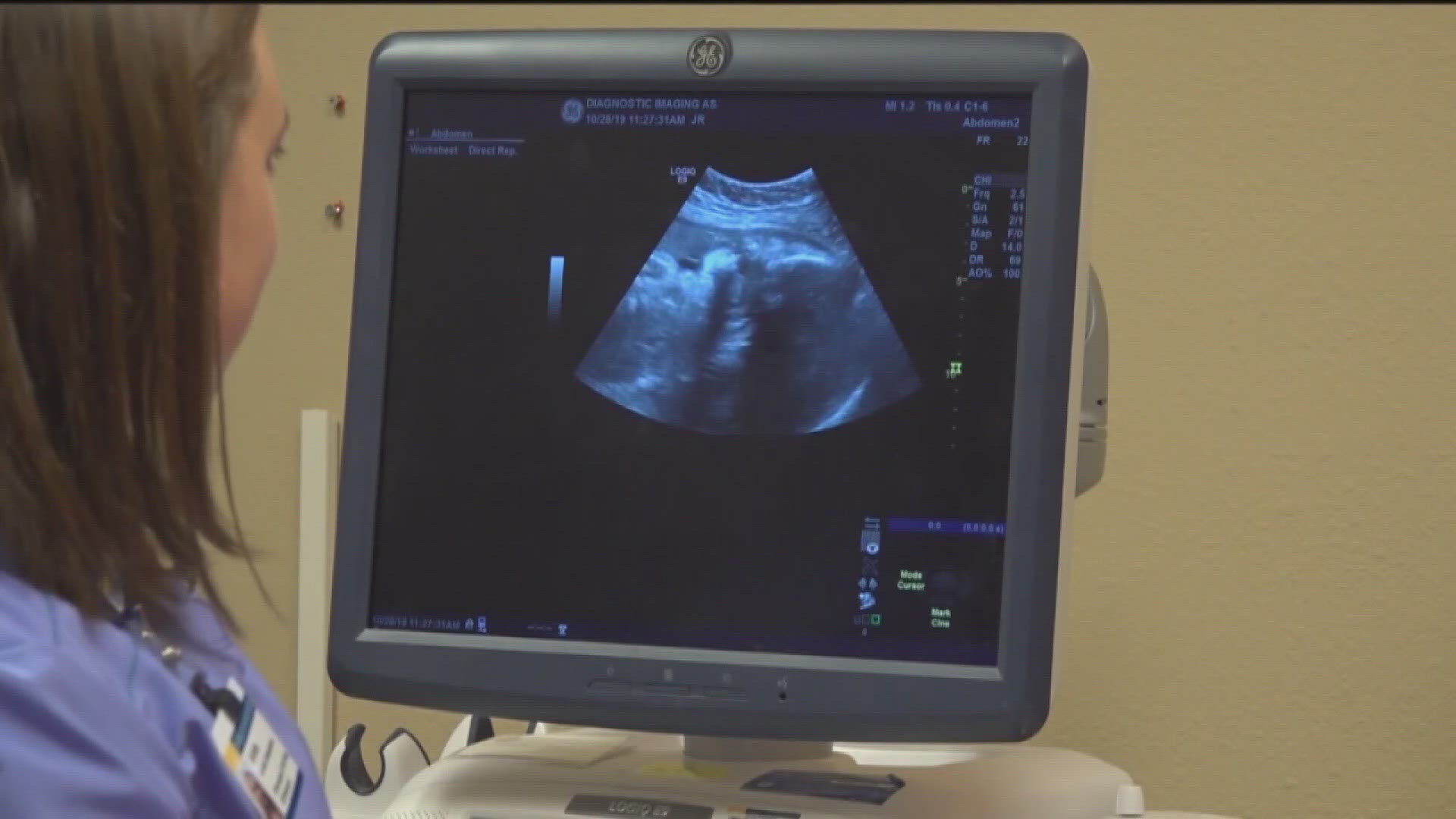NASHVILLE, Tenn. — A bill that criminalizes people who help pregnant minors find abortion care outside of Tennessee passed the House of Representatives on Tuesday. It previously passed the Senate and is expected to land on Governor Bill Lee's desk soon.
The bill, HB 1895, makes it a Class-A misdemeanor if people commit "abortion trafficking." It's described as the act of helping take minors outside of Tennessee for abortion care. Adults could also face prosecution or civil lawsuits for helping minors get abortion care drugs, or hide abortion care from a child's parents or guardians.
The misdemeanor carries a maximum penalty of around a year in prison. It also would not matter if minors want abortion care, and the bill would not apply to parents or legal guardians of unemancipated minors.
Amendments were introduced in the House and Senate that would have expanded the immunity to other members of children's families, such as grandparents, siblings, uncles and aunts. However, those amendments were voted down by the Republican supermajority.
"I always speak up about this because that was the experience I had working with the kids that I worked with for those years. They were the kids that had been abused or had problems, and a lot of times it was within their families. But, what about the young girl who is pregnant with her father's baby, and her mother covers for it? Who is that child going to go to?" said Rep. Gloria Johnson (D - Knoxville). "We cannot always count on parents doing the right thing ... This is doing nothing to protect children. This is actually harming children."
The House adopted an amendment that also excludes people who have written and notarized consent from children's parents or guardians from facing penalties. Ambulance drivers and "common carriers" taking people out of state in the scope of their business also could not face penalties.
Eleven amendments were also proposed in the House that would have also allowed abortion care if fetuses were diagnosed with lethal conditions, or would have specifically exempted contraceptives from the state's definition of "abortion." Another amendment would have allowed abortion care if pregnant children were less than 13 years old. However, those amendments were voted down by the state's Republican supermajority.
On top of the misdemeanor charge, people who help minors get abortion care could also face civil litigation from the parents of a minor. However, the bill specifically excludes fathers from bringing lawsuits against people if the minor's pregnancy resulted from rape or incest by the father.
The bill was introduced by Rep. Jason Zachary (R - Knoxville) and passed in a 74-24 vote. He previously said it was meant to be a parental rights bill, effectively guaranteeing parents have decisions about whether children have access to abortions.
"It is important to remember this is a parental rights bill," he said on the House floor on Tuesday. "We've reached a point now where children are being recruited, Missourians specifically where the AG has filed suit against Planned Parenthood for 'recruiting' children to take them across state lines to abort their babies."
Specific information about how Tennessee defines "recruiting" a minor for out-of-state abortion care was not immediately available. Opponents of the bill said it could curtail sharing information about abortion care rights and reproductive healthcare.
Zachary also said that while he had concerns for children who may be abused, he also had concerns "for the child that is in utero." He also said a parent called him around a year ago saying his 14-year-old child was taken by a trusted adult out-of-state for abortion care. So, he said he tried to intervene in the child getting abortion care.
He also cited information from Live Action, an anti-abortion organization, that claimed people were forced to have abortion care and claimed minors were targeted by sex traffickers.
"You like to say that these parents can make the decision, but the reality is — how is anybody going to know it's incest because the child is not going to report to the parents? They're going to talk to a person that they can trust," said Johnson.
If signed into law, the bill would take effect on July 1.
"It is important to note that the law does not criminalize young people for seeking abortions, but instead seeks to create a culture of fear and isolation, where there should be support for young people weighing options about pregnancy," said Healthy and Free Tennessee in a release, an advocacy organization focused on reproductive justice.

